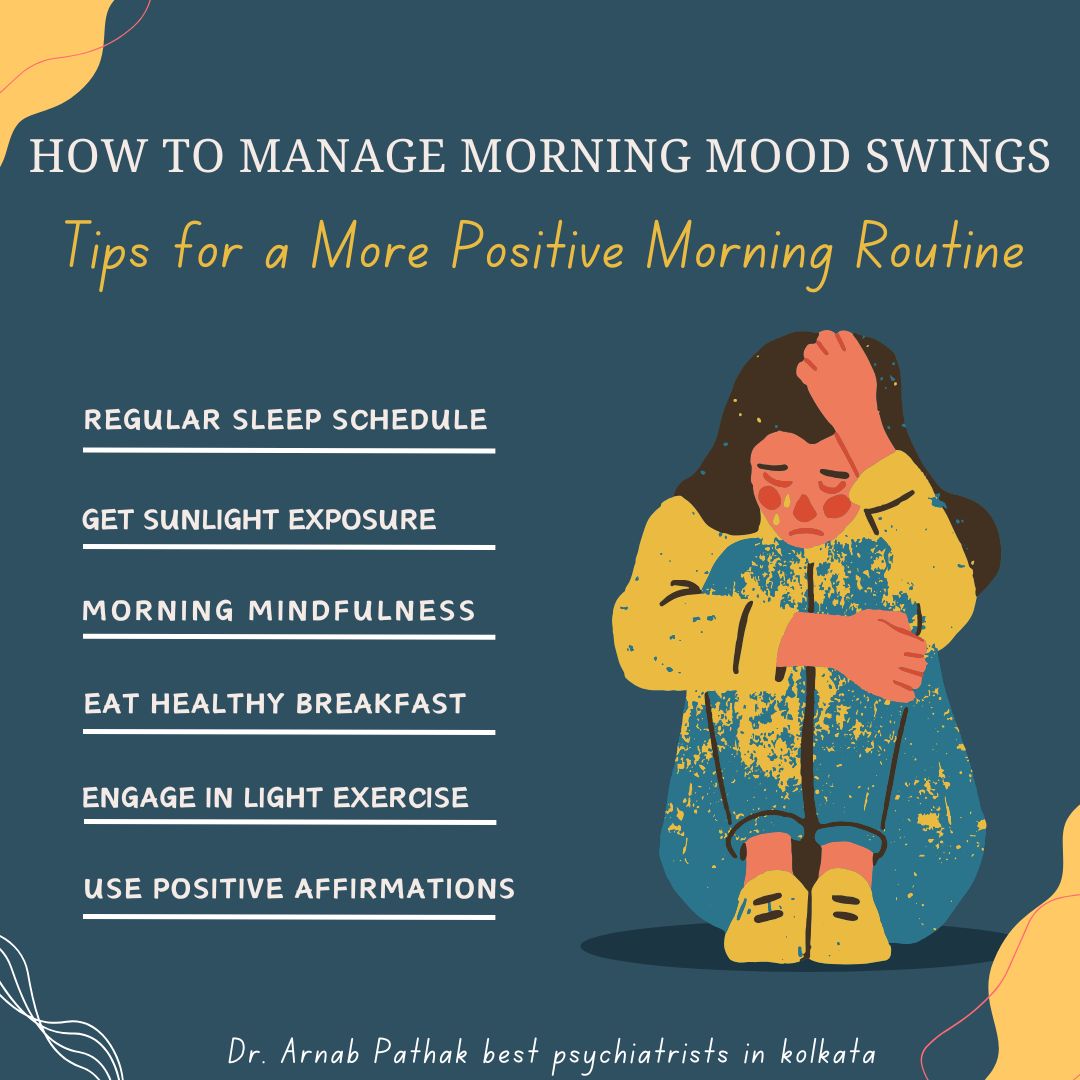How to Manage Morning Mood Swings: Start Your Day on a Positive Note
Waking up feeling irritable, anxious, or just “off” can make mornings challenging. If you often find yourself struggling with mood swings as soon as you get out of bed, you’re not alone. Many people experience emotional fluctuations in the morning, which can significantly affect their well-being and productivity for the rest of the day. Fortunately, by understanding the reasons behind these mood swings and adopting some practical strategies, you can create a more positive start to each day.
What Causes Morning Mood Swings and How to Manage Them
Morning mood swings can result from a combination of biological, psychological, and lifestyle factors. Let’s explore the most common causes and how you can manage them effectively:
- Circadian Rhythm Disruptions
Your circadian rhythm, the body’s natural internal clock, plays a critical role in regulating sleep-wake cycles. Disturbances to this rhythm caused by irregular sleep schedules, late nights, or poor sleep quality can lead to feelings of grogginess and irritability upon waking.
- Hormonal Imbalances
Hormones like cortisol, known as the “stress hormone,” typically peak in the morning to help wake you up. However, imbalances in hormone levels can result in anxiety, stress, or mood swings as soon as you wake up.
- Mental Health Considerations
Morning mood swings might be exacerbated by underlying mental health conditions like depression or anxiety. If you wake up feeling persistently sad, anxious, or overwhelmed, it could indicate a deeper issue that may need professional support.
- Lifestyle and Daily Habits
Your daily habits significantly impact your morning mood. Lack of exercise, an unhealthy diet, and high stress levels can all contribute to negative emotions when you wake up.
Tips for a More Positive Morning Routine
A positive morning routine can set the tone for the rest of your day. Here are some effective strategies to help you start your day feeling refreshed and energized:
- Stick to a Regular Sleep Schedule
Go to bed and wake up at the same time every day to help regulate your body’s internal clock. Aim for 7-9 hours of quality sleep and create a calming bedtime routine to help you unwind.
- Get Sunlight Exposure Early
Expose yourself to natural light as soon as you wake up. Open your curtains or step outside for a few minutes to help reset your circadian rhythm and improve your mood.
- Practice Morning Mindfulness
Incorporate mindfulness practices like meditation, deep breathing, or gentle stretching into your morning routine. These activities help centre your thoughts, reduce anxiety, and set a calm tone for the day.
- Eat a Healthy Breakfast
Start your day with a nutritious breakfast that includes protein, whole grains, and fruits. Avoid foods high in sugar or caffeine, as they can cause energy crashes and mood fluctuations later in the day.
- Engage in Light Exercise
Include some form of physical activity, such as a short walk, yoga session, or light workout, in your morning routine. Exercise releases endorphins, the body’s natural mood enhancers, helping you feel more positive.
- Use Positive Affirmations
Begin your day by focusing on positive affirmations or expressing gratitude. This simple practice can shift your mindset and create a more optimistic outlook for the day ahead.
Creating a Supportive Morning Environment
Your environment can have a significant impact on your mood in the morning. Here’s how you can make your surroundings more conducive to a positive start:
- Communicate with Your Support System
Talk openly with family members, friends, or roommates about your morning struggles and how they can help. This foster understanding and empathy, making it easier for you to start your day on a positive note.
- Set Boundaries for a Stress-Free Morning
Protect your morning routine by setting boundaries. Avoid checking emails, social media, or engaging in stressful conversations immediately after waking up.
- Seek Professional Help if Needed
If you find that morning mood swings persist despite your efforts, it might be time to seek professional guidance. A mental health professional can help identify underlying causes and provide personalized strategies for improvement.
Frequently Asked Questions (FAQs) About Morning Mood Swings
- What Are Common Reasons for Feeling Anxious in the Morning?
Morning anxiety can result from factors like disrupted circadian rhythms, hormonal imbalances, poor sleep quality, or underlying mental health conditions.
- How Can Diet Influence Morning Mood?
A diet high in sugar or caffeine can cause mood swings and energy crashes. Instead, opt for a balanced breakfast with protein, whole grains, and fruits to help stabilize your mood.
- What Simple Changes Can Improve My Morning Mood?
Adopting a consistent sleep schedule, practicing mindfulness, getting natural light exposure, and engaging in light exercise can significantly enhance your mood in the morning.
- When Should I Consider Professional Help for Morning Mood Swings?
If mood swings are persistent, severe, or interfere with daily functioning, it’s a good idea to consult a mental health professional for personalized support.
Final Takeaway
Morning mood swings don’t have to control your day. By understanding their causes and incorporating these strategies into your routine, you can start each day with a more positive outlook, boosting both your well-being and productivity.
If you’re struggling with persistent mood swings in the morning, don’t hesitate to reach out for help. As one of the leading psychiatrists in Kolkata, I, Dr Arnab Pathak, am here to guide you through these challenges. Contact me at 9804509480 for personalized support and treatment. Remember, a positive morning can set the stage for a brighter, more fulfilling day.

